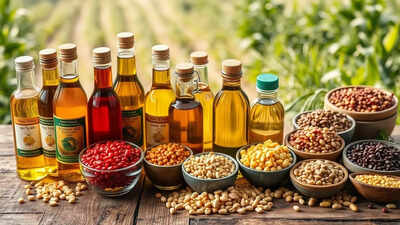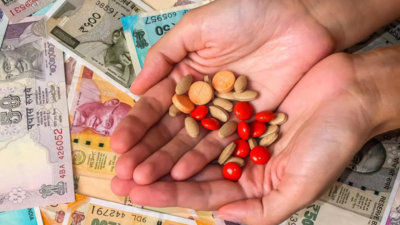Agriculture self-reliance: Govt says oilseeds and pulses output growing faster; MPs raise alarm over costly edible oil imports

The government has told a parliamentary committee that domestic production of pulses and edible oils has risen at a greater pace in the last 10 years compared to the previous decade, even as several MPs voiced concern over the country’s continued dependence on imports to meet demand.In a presentation to the Standing Committee on Agriculture, Animal Husbandry and Food Processing, the agriculture ministry said imports accounted for 15.66 million metric tonnes (MMT), or 56 per cent, of the total domestic demand for edible oils in 2023-24.Sources said the ministry, during the committee meeting held on June 20, emphasised the ongoing efforts to achieve self-sufficiency, PTI reported. It noted that oilseeds production rose by 55 per cent between 2014-15 and 2024-25, with the third advance estimate pegging production at 426.09 lakh tonnes in the last fiscal.In contrast, the growth in oilseeds output was only 13 per cent in the 2004-05 to 2014-15 period.MPs also expressed concerns over public health, particularly in connection with India’s high dependence on imported palm oil, which is relatively cheaper. Some members flagged possible health hazards associated with palm oil consumption.The ministry said the country’s dependence on edible oil imports is costing more than Rs 80,000 crore annually.Based on the data presented for 2023-24, India’s domestic production was adequate to meet the demand for mustard and groundnut oils. However, the country had to import 3.49 MMT of sunflower oil against a domestic consumption of 3.55 MMT and imported more than 60 per cent of its soybean oil needs.On pulses, the ministry said their production rose by 47 per cent between 2014-15 and 2024-25—a period when the BJP-led NDA was in power—compared to a 31 per cent increase in the decade before, under the Congress-led UPA government.Some MPs suggested incentivising farmers who traditionally grow paddy and wheat to shift towards pulses and oilseeds.The ministry also elaborated on the government’s roadmap to achieve ‘aatmanirbharta’ or self-reliance in pulses and oilseeds by 2030-31. These plans were detailed in the Union Budget earlier this year.Among the challenges flagged by the ministry was that 75 per cent of pulse crops are rainfed and grown on marginal lands with low fertility by small and marginal farmers.The sources added that the presentation also covered the government’s national campaign to promote “optimal utilization of edible oils and its health benefits” in line with Prime Minister Narendra Modi’s call for a 10 per cent reduction in their intake to boost overall fitness.





